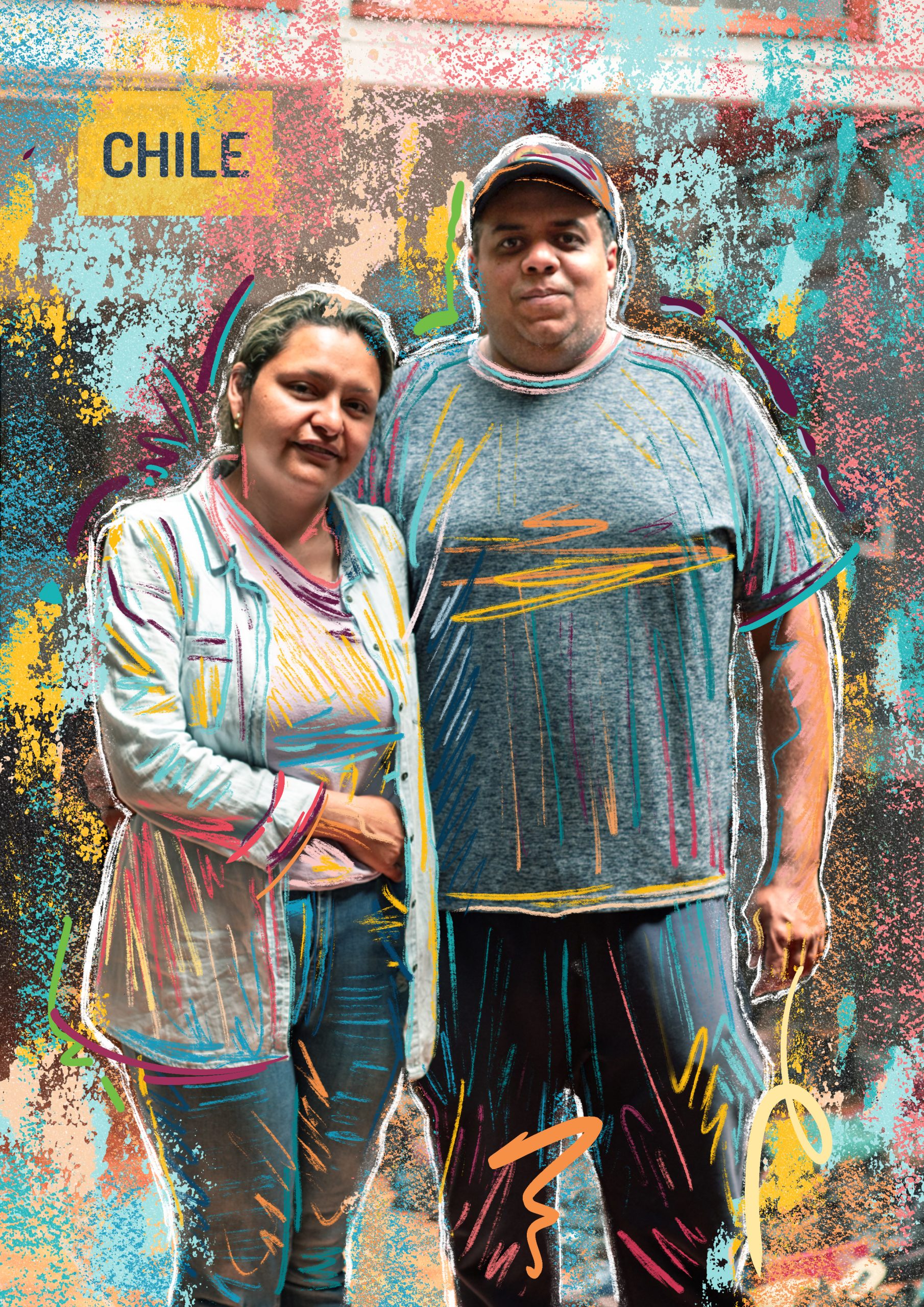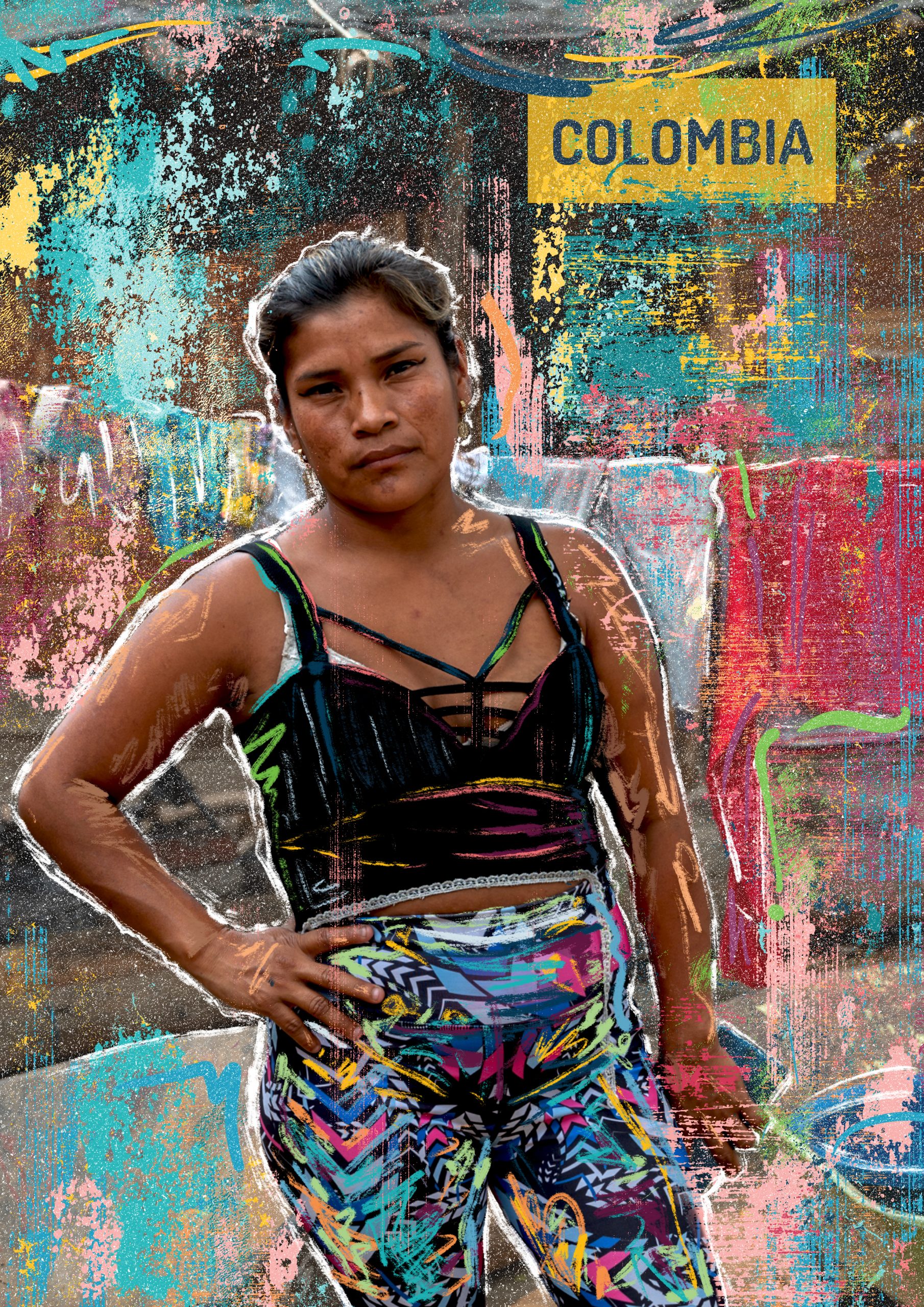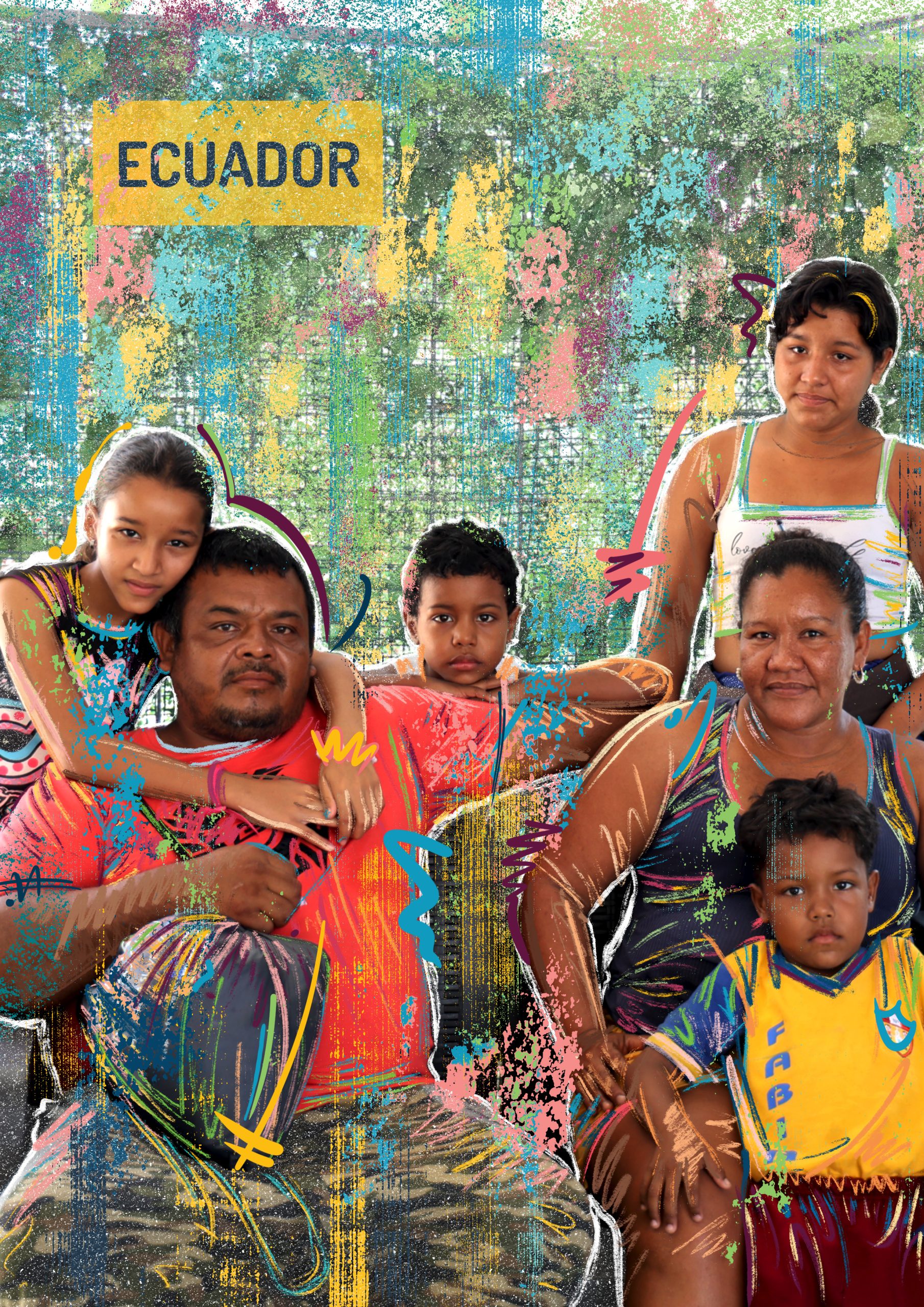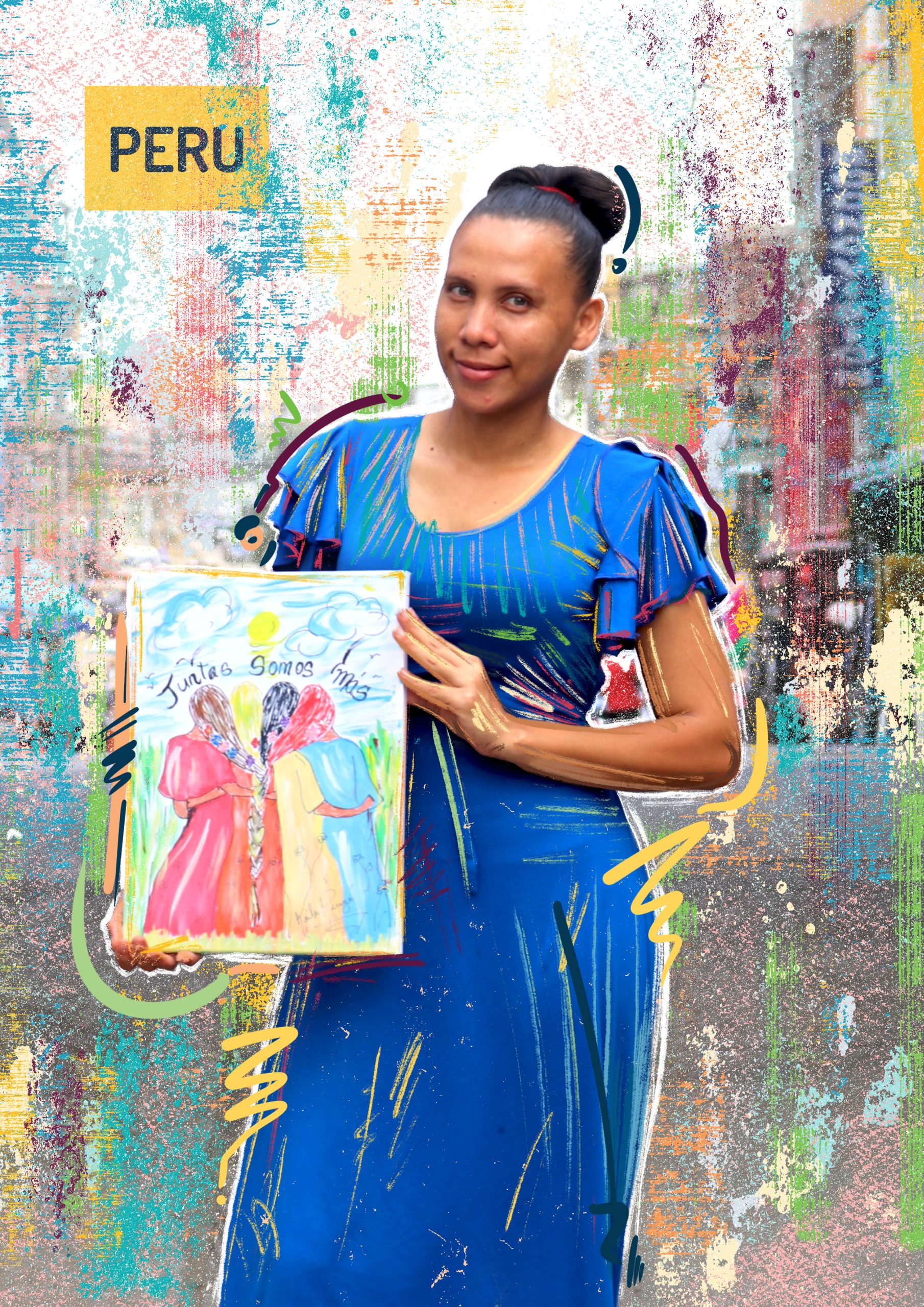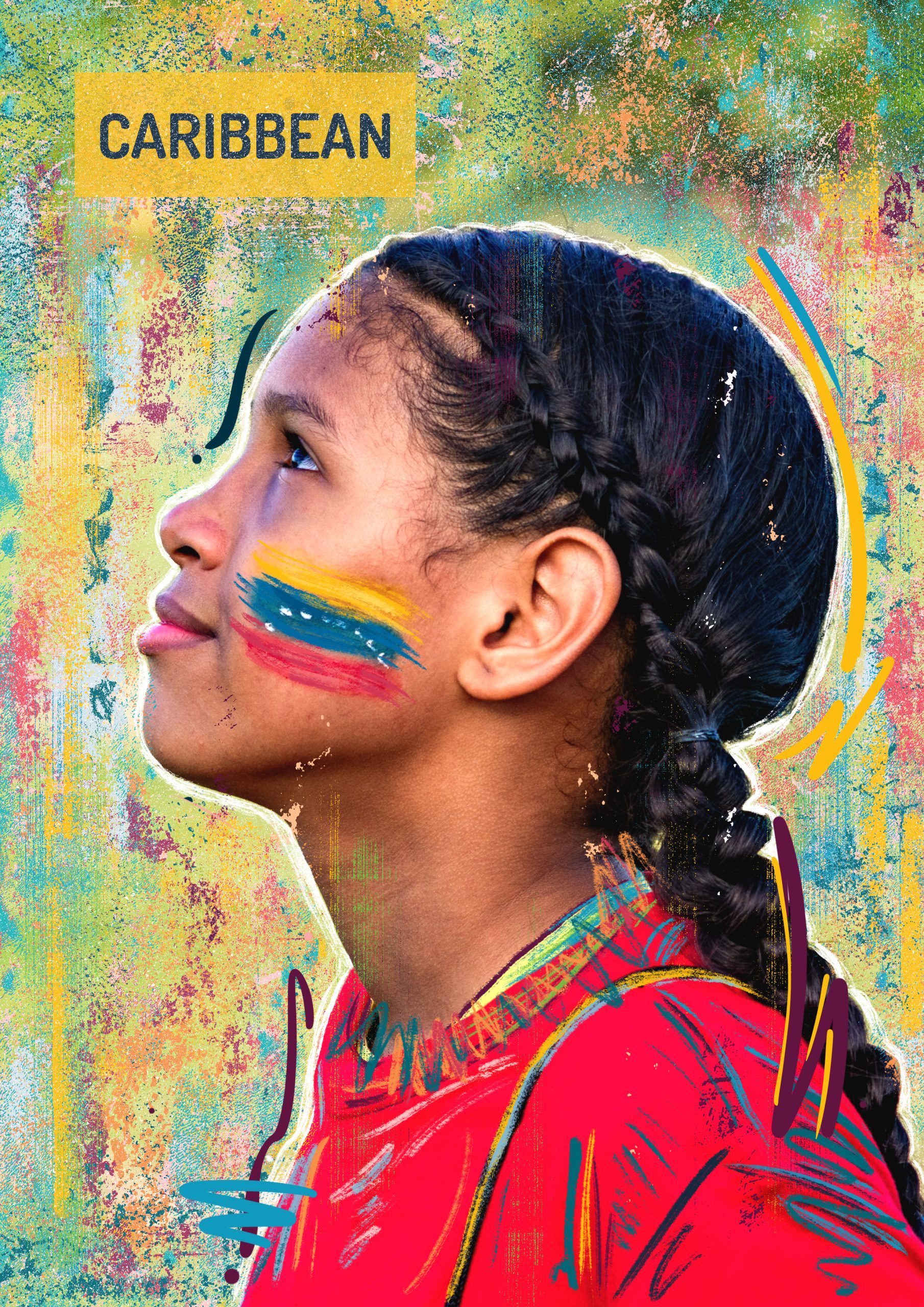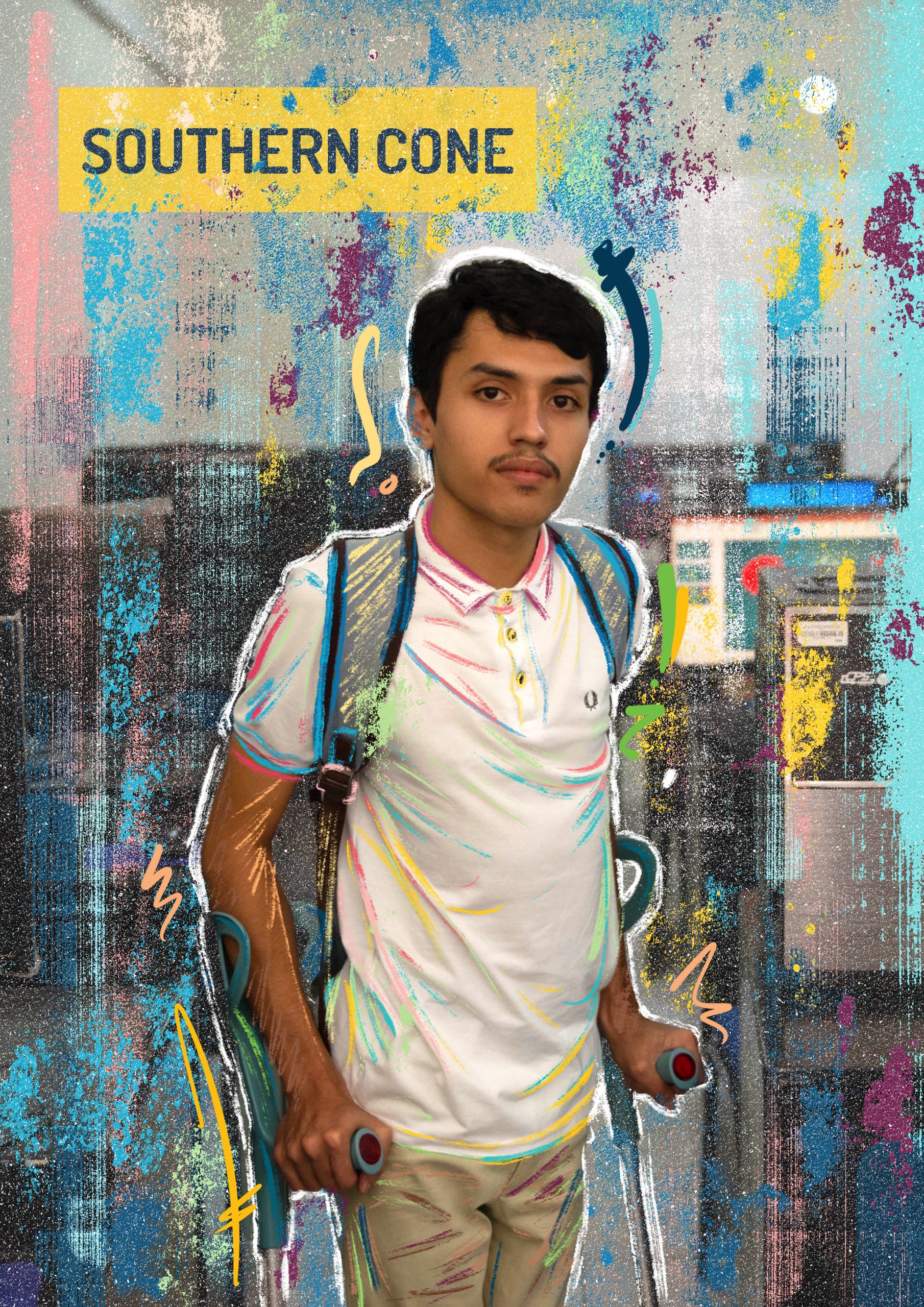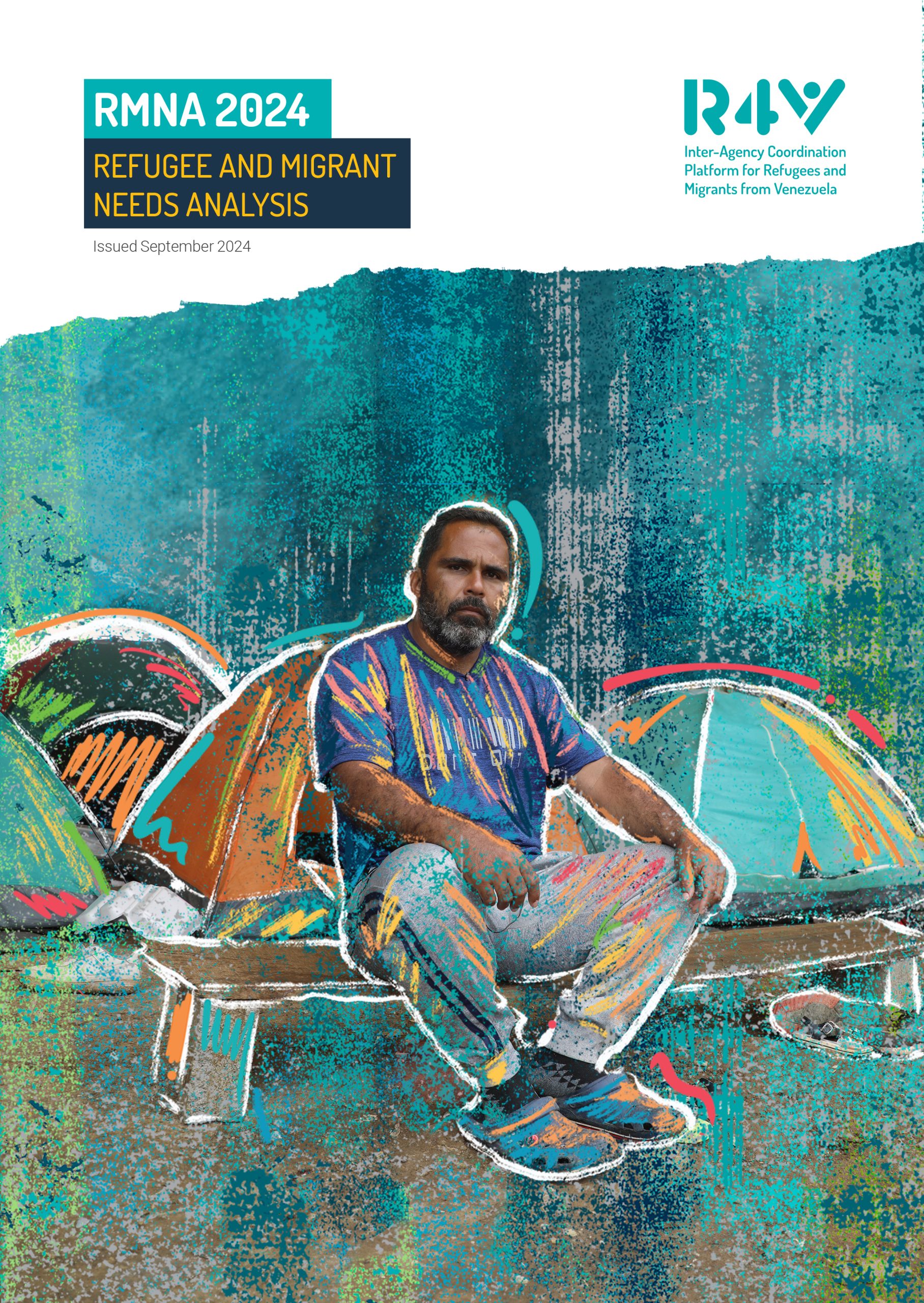Photo: @UNHCR/Melissa Pinel Intervention: © R4V /Esteban Vélez
The Refugee and Migrant Needs Analysis (RMNA) 2024 is a comprehensive, evidence-based assessment of the needs of migrants and refugees in the 17 countries covered by the R4V Platform. It draws on a regionally harmonized framework for joint needs assessments (JNAs), developed and implemented in an inter-agency manner among regional and national partners. Its results allow for a comparative analysis of the situation of refugees and migrants in the different countries and situations, notably of Venezuelan migrants and refugees in-destination, as well as those engaging in transit and onward movements (along the Andean Corridor and Central America, based on needs and without distinction of nationality).
More than 14,000 household surveys were conducted in 15 of the 17 R4V countries, corresponding to more than 41,500 refugees’ and migrants’ views. This direct feedback was complemented by secondary sources, including reports from UN agencies, international and local NGOs, academia, international financial and development institutions, and official statistics from national authorities. Moreover, this year, in ten countries the resulting topline figures for multisectoral needs (the percentage of People in Need; PiN) are based on the Multidimensional Poverty Index (MPI) methodology, allowing for a more comprehensive analysis of needs and for a deeper understanding of people’s needs within their households and groups in transit. These findings from the RMNA will inform the Regional Response Plan for Refugees and Migrants (RMRP) for 2025-2026, which will be presented in December 2024.
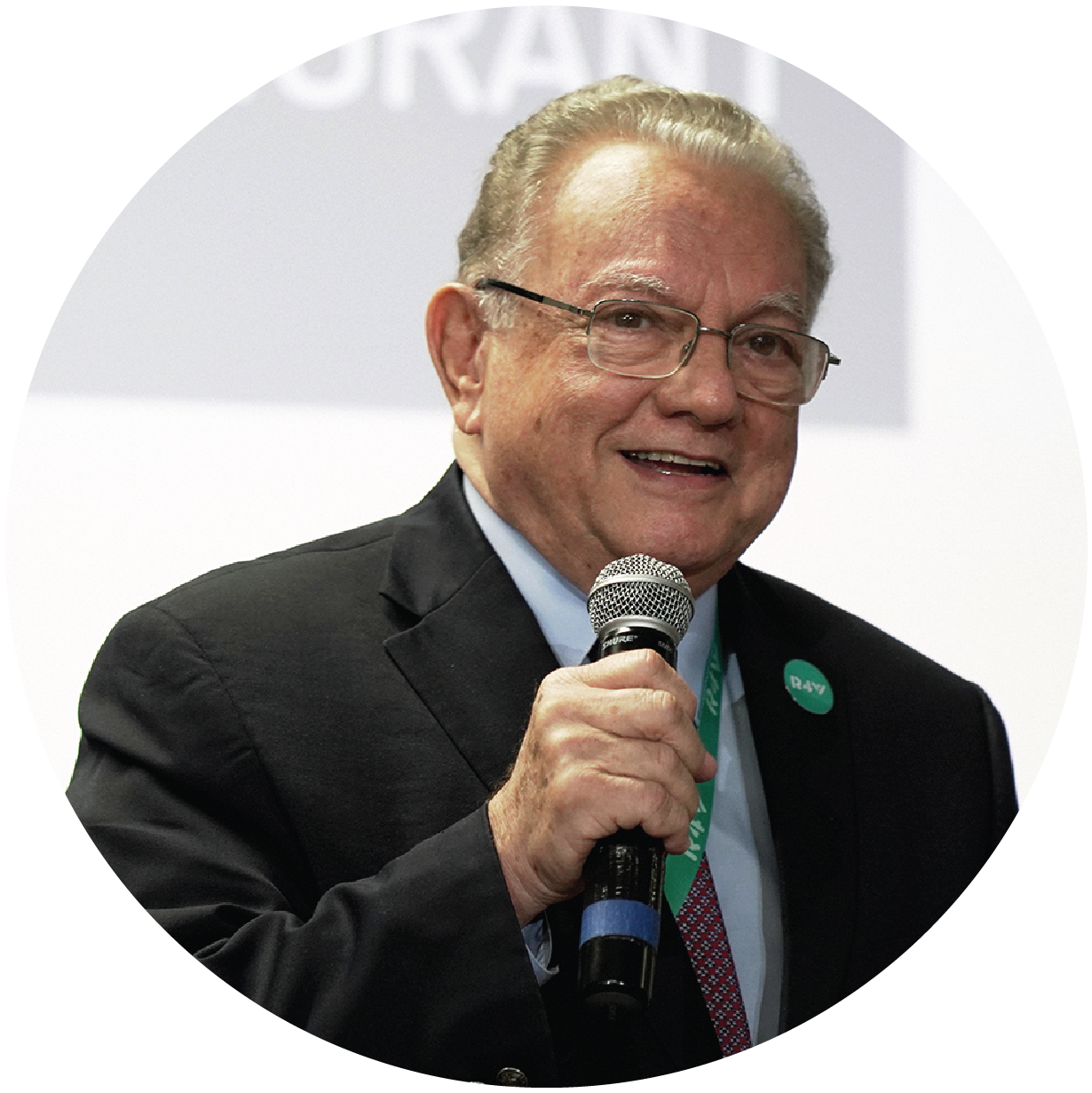
Amid the hope sparked by Latin America and the Caribbean’s strides of many countries in regularizing and integrating refugees and migrants, we must not overlook the profound vulnerabilities that still exist—critical needs remain for continued and coordinated efforts across the region.
Eduardo Stein, Joint Special Representative of UNHCR and IOM for Refugees and Migrants from Venezuela
key figures
@IOM/Francisca Salinas
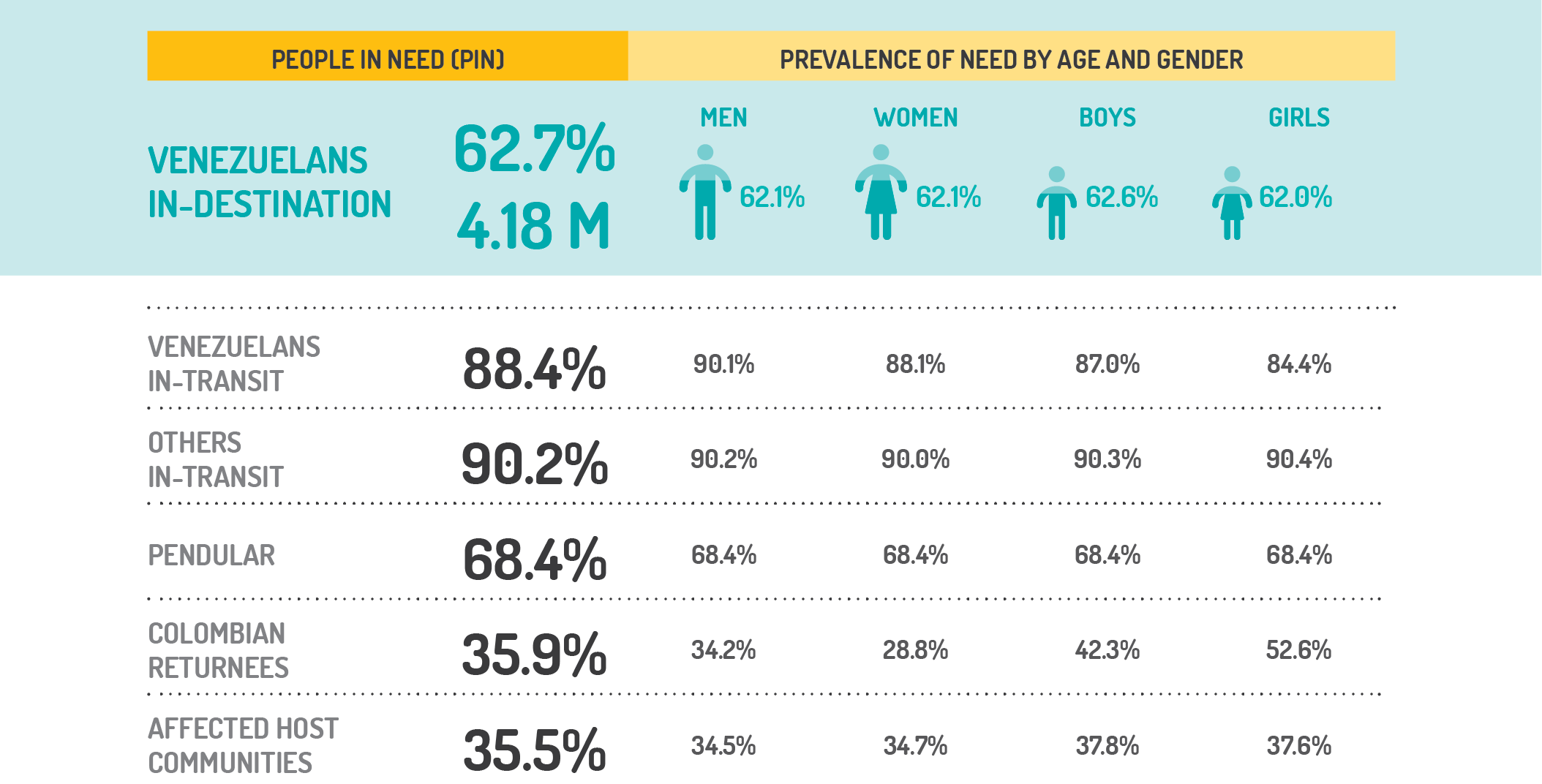
General Situation
@UNHCR/Ángela Hurtado
WHAT DO REFUGEES AND MIGRANTS
AND THEIR HOST COMMUNITIES NEED IN 2024?
EVOLUTION OF THE FIGURES IN THE 17 R4V COUNTRIES
The findings of the RMNA 2024 underscore the commendable achievements of host countries and of R4V partners in contributing to the stabilization of refugees and migrants in their host communities, while also highlighting ongoing challenges faced by migrants and refugees (Venezuelans and other nationalities) in Latin America and the Caribbean.
Some 4.5 million Venezuelans have benefitted from generous regulatory and protection frameworks to attain a regular migratory status or refugee recognition, and obtain documentation, as well as to pursue their education and access much-needed healthcare, while contributing to local economies.
Despite these efforts, and against a background of economic and socio-political uncertainties, refugees and migrants were also found facing considerable challenges. While across the region, nearly 68 per cent of refugees and migrants from Venezuela have succeeded in obtaining such a regular migratory status or refugee recognition, some 2.2 million remain in an irregular situation, predominantly owed to high costs and strict entry and visa requirements, and complex legal processes.
Among migrants and refugees from Venezuela in-destination, the top sectoral needs were identified in the fields of Integration, Shelter, and Protection. These needs reflect the priority considerations underpinning the daily lives of refugees and migrants, aiming to integrate in a meaningful manner, through formal employment, to maintain a safe and stable home, put enough food on their tables and with children pursuing their education for a better future, all of which are undermined while being in an irregular situation.
VENEZUELANS IN-DESTINATION IN NEED OF
ASSISTANCE BY SECTOR AND COUNTRY
SUMMARY OF NEEDS
The RMNA 2024 highlights the heightened vulnerability of migrants and refugees in irregular situations, those recently arrived, and those in transit, showing that many are unable to access basic rights and services needed for a dignified life. Despite significant efforts, the region faces unprecedented movements of refugees and migrants driven by violence, discrimination, and poverty, with restrictive policies and socio-economic challenges further limiting their access to protection and integration.
Refugees and migrants, particularly those engaging in transit and onward movements, struggle with basic needs such as food, shelter, and protection. Those in destination face particular barriers to integrate, resulting in integration, shelter and protection being their most prevalent needs. High unemployment, informal work, inadequate housing, and lack of financial resources hinder their socio-economic integration, exacerbating risks like food insecurity, homelessness, and exposure to violence. Discrimination and increasing xenophobia further complicate their lives, contributing to decisions to move on, often through dangerous and irregular routes. These persistent challenges underline the urgent need for coordinated and comprehensive support to ensure their safety, well-being, and opportunities for a stable future. The RMNA 2024 provides a detailed analysis of these issues, guiding responses to better meet the needs of migrants and refugees across the region.
MONITORING OF SITUATION AND NEEDS
@Save the Children
The R4V Platform relies on a diverse array of sources to perform a current analysis of refugee and migrant movements, as well as their needs, throughout Latin America and the Caribbean. It relies heavily on Joint Needs Assessments (JNAs), where partners collect firsthand accounts and data to assess the vulnerabilities and needs of these populations. This information feeds directly into the RMNA, giving a clear picture of the challenges refugees and migrants face across different sectors. By continuously gathering data through JNAs and other monitoring efforts, R4V partners can track changes over time and take informed decisions to address emerging needs, while host governments can draw on these findings to monitor the impact of policies, and, where needed adapt to evolving situations. The Platform also provides regular updates through quarterly Movements Reports, Situation Reports, monitoring and financial tracking via the R4V Monitoring and Funding Dashboards, ensuring that responses are timely and targeted to where they are needed most.
This year’s RMNA shows the results of an enhanced regionally harmonized and coordinated needs analysis framework. Throughout 2023, harmonized indicators and questions were developed using an active and consultative process for estimating needs, based on identified thresholds for JNAs, oriented to people in-destination and to those engaging in onward and transit movements. The resulting harmonized framework of indicators, questions and thresholds to identify the main needs of refugees and migrants in-destination and in-transit for the 12 regional thematic sector groups of the R4V response is available in this catalogue and summarized in the R4V JNA Analytical Framework.
TYPE AND MODALITY OF DATA COLLECTION USED FOR THE
IN-DESTINATION PIN COUNTRY CALCULATIONS
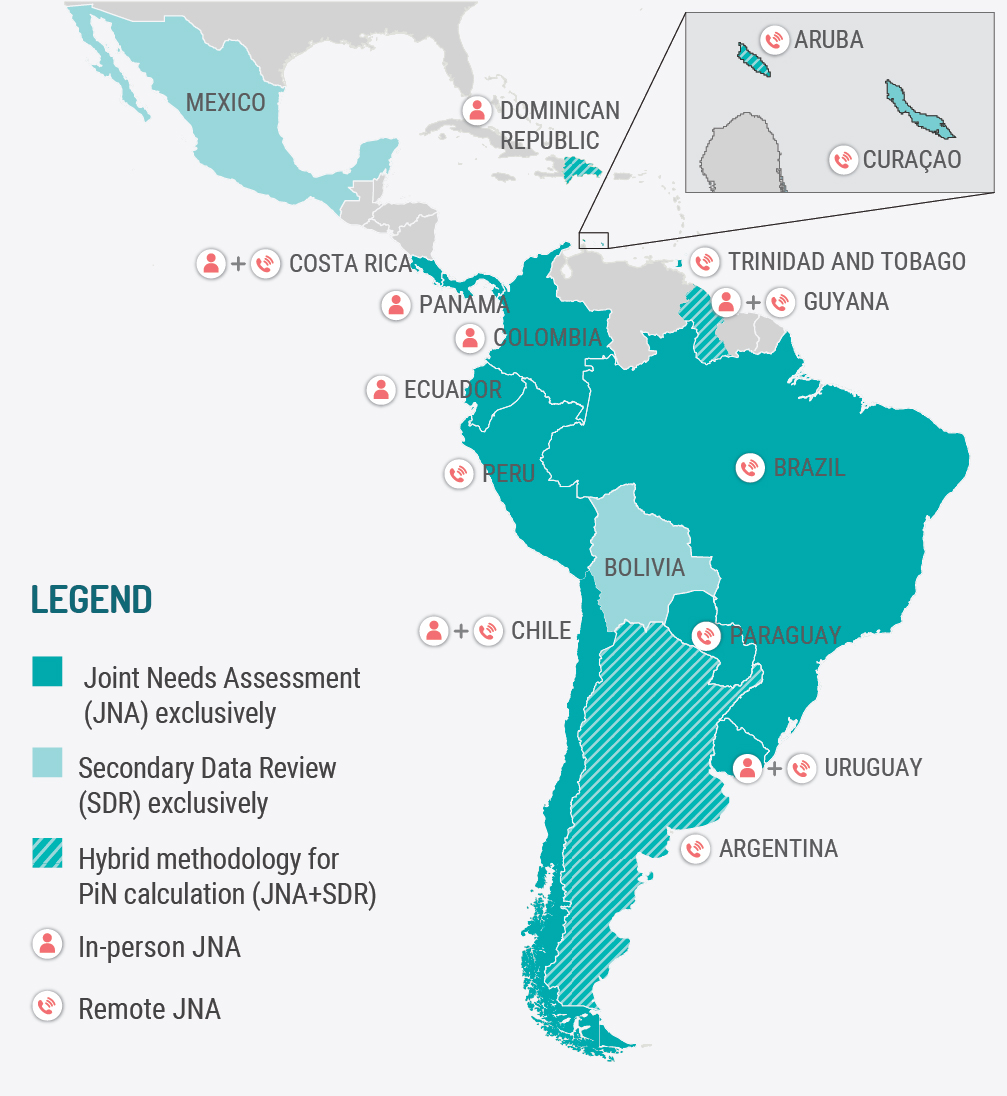
For the Venezuelan in-destination population, the national R4V JNAs conducted in the first semester of 2024 were the main data source used for PiN calculation purposes (11 countries relied exclusively on it and 4 used it partially). For the 4 countries using a hybrid approach, the PiN calculation was complemented with secondary data. As for the population in transit, PiN calculations were exclusively based on JNA results in Colombia and Ecuador, while secondary data sources were exclusively used in all other countries with in-transit populations.
WHAT IS R4V?
Since its establishment in 2018, the Regional Inter-Agency Coordination Platform for Refugees and Migrants from Venezuela (also known as “R4V”) has led a regionally coherent and consistent response for migrants and refugees and affected host communities across 17 countries of Latin America and the Caribbean. In 2024, these efforts bring together 248 partners – including UN agencies, funds and programmes; international and national NGOs; a broad spectrum of civil society and faith-based actors, including some 65 refugee- and migrant-led organizations and the Red Cross Movement; international financial and development institutions, and academia – to support host governments in meeting the humanitarian, protection and socio-economic integration needs of millions of migrants and refugees, largely from Venezuela, but increasingly also from other countries of origin. On the latter, R4V has increasingly extended its operational response to other nationalities in-transit throughout the region, based on their humanitarian needs, focusing on a hemispheric/regional approach.

